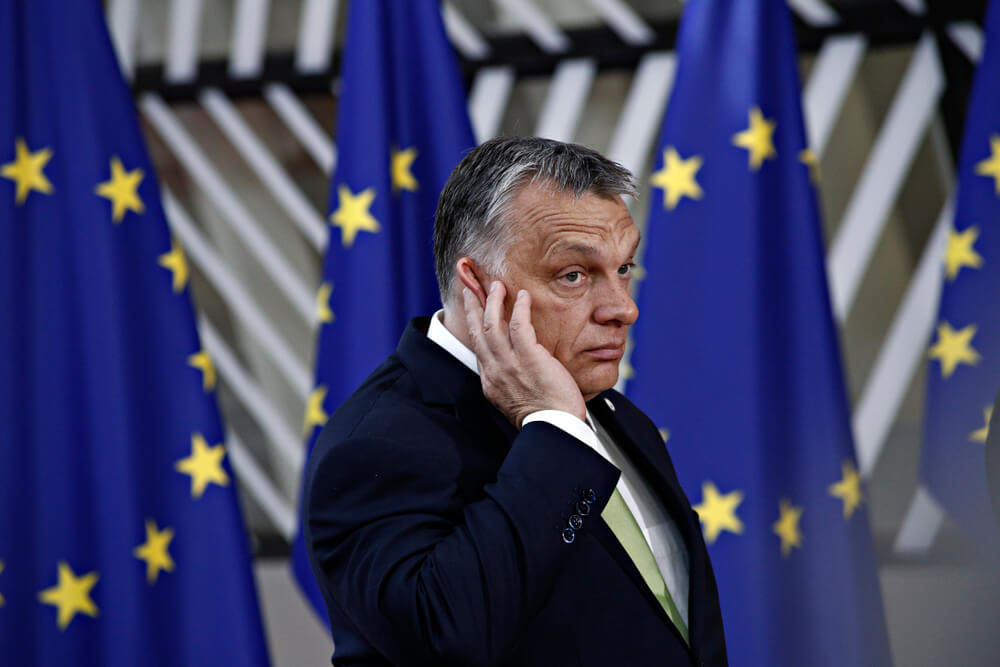Chinese leader Xi Jinping will visit Europe after almost 5 years. His tour in early May comes at a time when relations with Europe are significantly more strained than they were in 2019.
Russia's invasion of Ukraine and China's aggressive actions in the Indo-Pacific strained relations and, in many aspects, polarised the Europeans and China into blocs that have more points of conflict than cooperation.
Xi will first stay in Paris, expecting to continue the dialogue with President Emmanuel Macron from a year ago in Beijing. The French leader then showed more inclination towards cooperating with China than his EU and US partners.
While Xi's talks in France will also aim to regulate overall Chinese relations with the EU, primarily regarding the technological and economic restrictions that the Union has introduced to China, the pragmatic focus of the Chinese leader will be directed towards Hungary.
During his visit to Hungary from May 8 to 10, Xi hopes to show that China's influence in Europe is still very much alive.
Symbolism to the detriment of Europe
Hungarian PM Viktor Orbán enthusiastically welcomes the Chinese leader. Xi's visit will have multiple symbolisms, as he will be in Hungary on May 9, Europe Day.
Given that Hungary joined the European Union 20 years ago on the same day, the visit of the Chinese leader will overshadow these significant dates of Hungary's European affiliation and strengthen the Eurosceptic perception of its conservative leader.
However, there is more to Xi's visit to Hungary and his conversations with PM Orbán than just symbolism.
Hungary is China's first choice for its impact on the electric vehicle industry on the European continent
Hungary is China's first choice for its impact on the electric vehicle industry on the European continent.
The Chinese giant in the production of EV batteries, CATL, built a factory in Debrecen, the second-biggest city in Hungary. The factory has the largest capacity in Europe (100 GWh) and is expected to begin operations next year. The investment is worth close to €7.5 billion.
Also, next year, in Szeged, in the south of Hungary, the largest European factory of the Chinese EV manufacturer BYD will start operating, and it will reach full capacity in 3 to 4 years.
Even though not yet confirmed, the Chinese and Hungarian leaders are also scheduled to visit Pécs in southern Hungary, where another Chinese auto giant, Great Wall, is set to start building a large factory.
While Hungary is increasingly becoming a hub for China's car battery and EV industry, the EU has been investigating the threat to its electric car market from an influx of cheaper and highly subsidised cars from China.
Stopping the negative trend of cooperation with China
Xi's visit to Hungary aims to show the vitality of Beijing’s presence in Central and Eastern Europe. It has diminished in recent years as many former European partners gave up, seeing no economic benefit, and instead adopted the joint confrontational position of the EU and the US towards Beijing.
The former forum of China and the group of economies from Central and Eastern Europe, 16+1, launched in 2012, has practically ceased to exist. Beijing desired to institutionalise cooperation with the Europeans on the Belt and Road Initiative through this forum, but it experienced a fallout.
Hungary and Viktor Orbán want to emphasise that they will remain in a solid partnership with Beijing, and the forthcoming summit will be a new confirmation of that
Three Baltic states withdrew from the forum. Italy recently cancelled cooperation with the BRI, following the decision of PM Giorgia Meloni's government. The government of the Czech Republic might follow the same path.
However, Hungary and Viktor Orbán want to emphasise that they will remain in a solid partnership with Beijing, and the forthcoming summit will be a new confirmation of that.
Orbán's contribution to solving problems with the EU
China sees Hungary as "an important partner in Belt and Road cooperation and China-CEEC cooperation", as announced by the Ministry of Foreign Affairs in Beijing on the eve of Xi's visit.
In the Chinese partnership hierarchy, Hungary has a slightly lower status than neighbouring Serbia, which, according to the Chinese Ministry of Foreign Affairs, is "China's first comprehensive strategic partner in Central and Eastern Europe".
 Viktor Orbán's government, through economic arrangements with Chinese companies, will continue to try to overcome problems with the flow of finances from EU funds
Viktor Orbán's government, through economic arrangements with Chinese companies, will continue to try to overcome problems with the flow of finances from EU funds
However, the volume of investments and plans for future joint projects (high-speed railways, for example), and particularly its membership in the EU and NATO (which Serbia does not have), undoubtedly make Hungary China's number one partner in Europe.
With his visit to Budapest, Xi wants to emphasise that partnership and show the EU that China could have a massive presence in its backyard, regardless of the joint approach of "de-risk, not decouple", as formulated by the head of the European Commission, Ursula von der Leyen.
In the case of Hungary, China has managed to get at least one place in the EU and NATO to turn its economic influence into a security and political one, given that an agreement on public security issues was concluded last February.
On the other hand, PM Orbán's government, through economic arrangements with Chinese companies, will continue to try to overcome problems with the flow of finances from EU funds.
In the future, Viktor Orbán will try to resolve the disputes he has with Brussels using bargaining and blackmail, and the forthcoming visit of the Chinese leader will give him a new impetus in this respect.